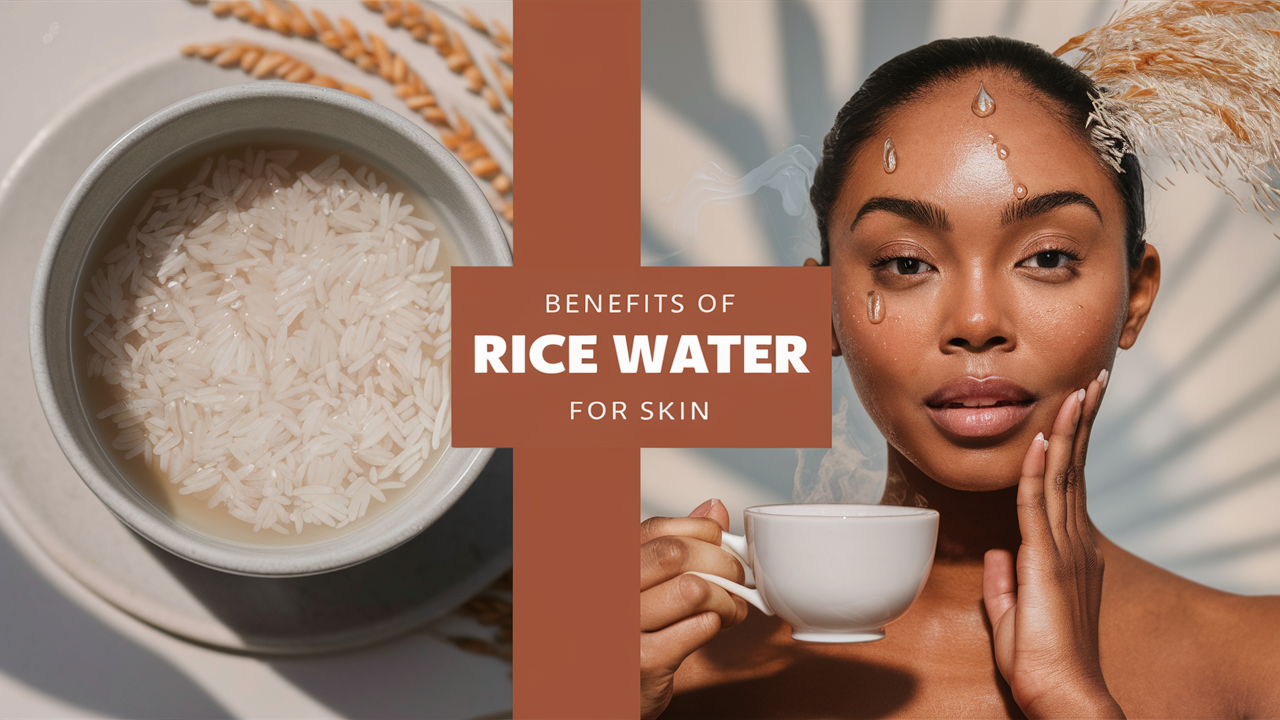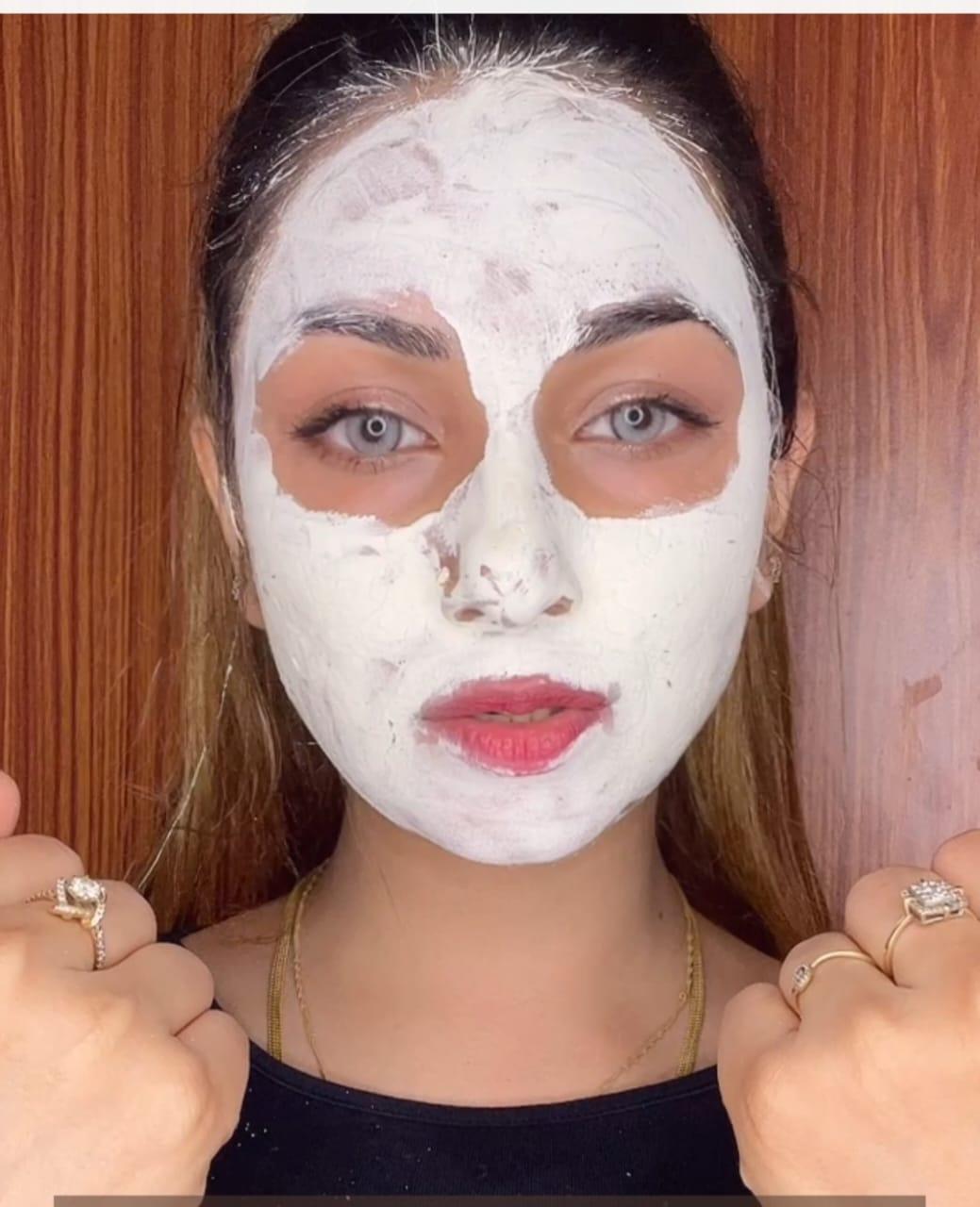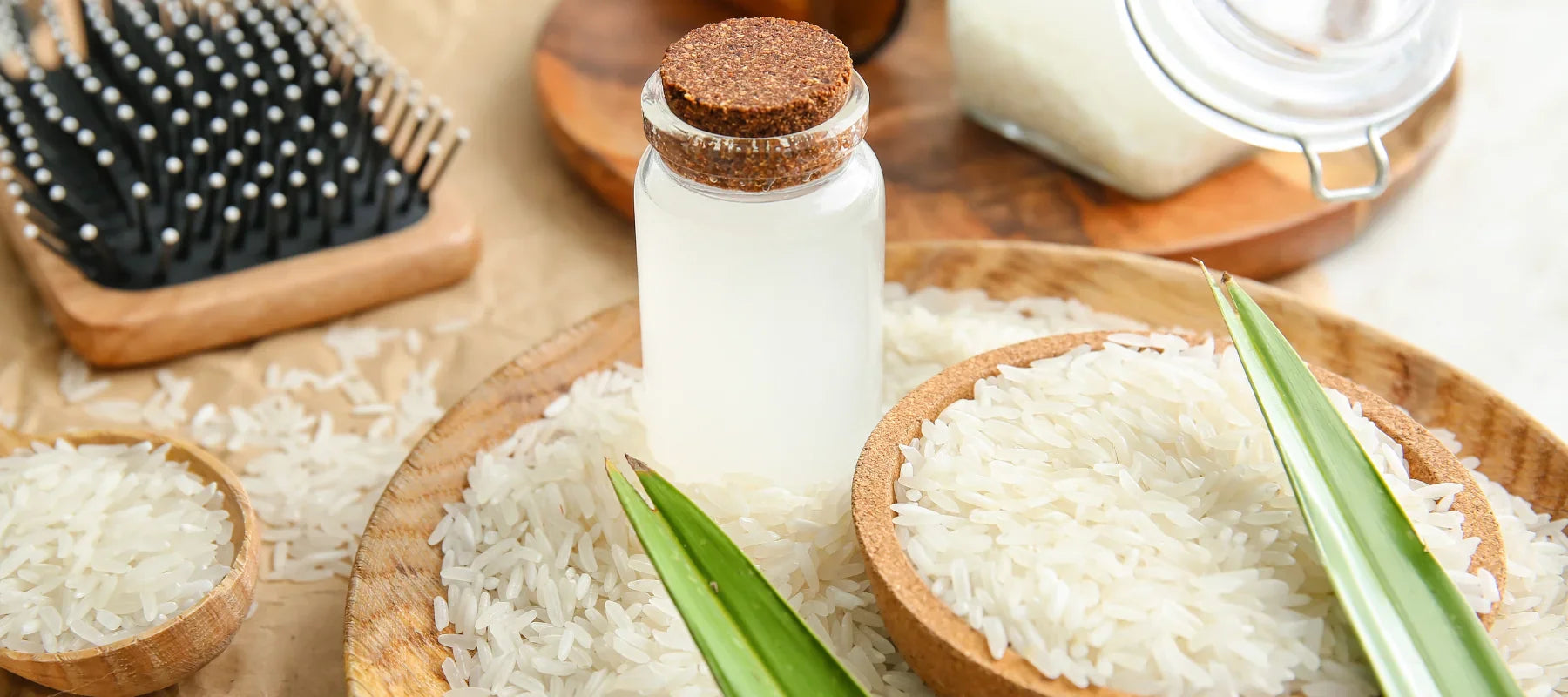Table of Contents
In the world of skincare, natural remedies have always held a special place, offering affordable, effective, and gentle ways to care for our skin. One such gem that has gained immense popularity in recent years is the Rice Face Mask. Rice, a staple in many households around the world, is not only a dietary essential but also an incredible skincare ingredient with numerous benefits. This simple kitchen ingredient can be transformed into a powerful beauty treatment for achieving glowing, youthful, and healthy skin.
In this blog, we will delve deep into the world of rice face masks, exploring their benefits, how to make them at home, and why incorporating them into your skincare routine can be a game-changer for your skin.

The History of Rice in Skincare
Before we explore the benefits and recipes of rice face masks, let’s take a brief look at the historical significance of rice in skincare. Rice has been used in skincare routines for centuries, particularly in Asian countries like Japan, Korea, and China. In ancient times, Japanese women, especially geishas, were known to use rice water to cleanse and soften their skin. Rice bran oil and rice powder were commonly used to exfoliate and brighten the complexion.
The popularity of rice in beauty rituals has only increased over time, and today, rice-based skincare products are widely available. However, you don’t need to rely on store-bought products to enjoy the benefits of rice for your skin. You can easily create your own rice face mask at home, using natural ingredients that are gentle on your skin and free from chemicals.
Benefits of Rice Face Mask for Skin
Rice is packed with nutrients that are beneficial for the skin. It contains vitamins, minerals, and antioxidants that help improve the overall health and appearance of the skin. Here are some of the key benefits of using a rice face mask:
Skin Brightening
One of the most well-known benefits of rice for the skin is its ability to brighten and even out the complexion. Rice contains a compound called phytic acid, which acts as a natural exfoliant. This helps to remove dead skin cells and promote cell regeneration, resulting in a brighter and more radiant complexion.
Rice water and rice powder are also known for their skin-lightening properties, helping to reduce the appearance of dark spots, hyperpigmentation, and sun damage. With regular use, rice face masks can leave your skin looking more youthful and luminous.
Anti-aging Benefits
Rice is rich in antioxidants, such as ferulic acid and gamma oryzanol, which help protect the skin from damage caused by free radicals. Free radicals are unstable molecules that can damage the skin’s collagen and elastin, leading to premature aging, wrinkles, and fine lines.
Using rice face masks regularly can help reduce the signs of aging by neutralizing free radicals and supporting the skin’s natural repair process. The result is smoother, firmer, and more youthful-looking skin.
Soothing and Anti-inflammatory
Rice has natural anti-inflammatory properties that can help soothe irritated and sensitive skin. Whether you’re dealing with redness, acne, or inflamed skin, a rice face mask can help calm the skin and reduce inflammation. It is particularly beneficial for those with conditions like rosacea, eczema, or acne-prone skin.

Oil Control and Acne Reduction
For those with oily or acne-prone skin, rice face masks can be a great addition to your skincare routine. Rice helps to absorb excess oil from the skin, keeping it matte and preventing clogged pores. Its astringent properties help to tighten the pores, reducing the chances of breakouts.
Additionally, the starch in rice has been shown to have mild anti-acne properties, helping to reduce acne lesions and inflammation. Regular use of a rice face mask can help keep your skin clear and balanced.
Hydration and Moisturization
While rice is known for its oil-absorbing properties, it also helps to hydrate and moisturize the skin. Rice water, in particular, is rich in vitamins and minerals that help maintain the skin’s moisture balance, keeping it soft and supple. The amino acids present in rice help repair the skin’s natural moisture barrier, making it an excellent choice for those with dry or dehydrated skin.
Exfoliation
Rice powder acts as a gentle exfoliant, helping to remove dead skin cells without being too abrasive on the skin. This makes rice face masks suitable for all skin types, including sensitive skin. Regular exfoliation with rice masks helps to promote smoother skin, reduce the appearance of pores, and enhance the overall texture of the skin.
How to Make a Homemade Rice Face Mask
Now that we’ve explored the numerous benefits of rice for the skin, let’s take a look at some simple and effective homemade rice face mask recipes that you can try at home. These recipes use natural ingredients that you likely already have in your kitchen, making them both convenient and budget-friendly.
Basic Rice Face Mask for Skin Brightening
Ingredients:
- 2 tablespoons of rice flour (or ground rice)
- 1 tablespoon of honey
- 2-3 tablespoons of milk
Instructions:
- In a small bowl, mix the rice flour and honey together.
- Add the milk gradually, stirring until you get a smooth, paste-like consistency.
- Apply the mask evenly to your face and neck, avoiding the eye area.
- Leave the mask on for 15-20 minutes, or until it dries completely.
- Rinse off with lukewarm water, gently massaging in circular motions to exfoliate the skin.
- Pat your skin dry and follow with your regular moisturizer.
Benefits: This mask helps to brighten the complexion, hydrate the skin, and remove dead skin cells for a smoother texture. Honey adds moisture and has antibacterial properties, making it ideal for acne-prone skin.

Rice and Turmeric Face Mask for Glowing Skin
Ingredients:
- 2 tablespoons of rice flour
- 1 teaspoon of turmeric powder
- 3 tablespoons of yogurt or milk
Instructions:
- Combine the rice flour and turmeric in a bowl.
- Add the yogurt or milk and stir until you achieve a smooth, creamy consistency.
- Apply the mask to your face, leaving it on for 15-20 minutes.
- Rinse off with lukewarm water, gently massaging to exfoliate the skin.
- Pat dry and apply a gentle moisturizer.
Benefits: Turmeric is known for its anti-inflammatory and brightening properties, making this mask perfect for achieving a healthy glow. The yogurt provides probiotics that nourish the skin and help improve its texture.

Rice Water Face Mask for Hydration and Tightening
Ingredients:
- ½ cup of rice
- 1 cup of water
- Cotton pads or a clean washcloth
Instructions:
- Rinse the rice thoroughly to remove any impurities.
- Boil the rice in water for about 10 minutes, then strain the rice water into a bowl and let it cool.
- Soak cotton pads or a clean washcloth in the rice water and place them on your face like a sheet mask.
- Leave it on for 10-15 minutes, then remove and let the rice water dry on your skin.
- Rinse your face with cool water and follow with a moisturizer.
Benefits: Rice water is packed with vitamins and minerals that help to hydrate and tighten the skin. This mask is great for soothing irritated skin and leaving it feeling refreshed and rejuvenated.

Rice and Green Tea Face Mask for Anti-Aging
Ingredients:
- 2 tablespoons of rice flour
- 1 tablespoon of brewed green tea (cooled)
- 1 tablespoon of aloe vera gel
Instructions:
- In a bowl, mix the rice flour and aloe vera gel together.
- Gradually add the brewed green tea to create a smooth paste.
- Apply the mask to your face and neck, leaving it on for 20 minutes.
- Rinse off with lukewarm water and pat your skin dry.
Benefits: Green tea is rich in antioxidants that help fight free radical damage and reduce the signs of aging. Aloe vera soothes the skin and provides hydration, making this mask perfect for mature or dry skin.

Rice and Egg White Face Mask for Firming and Lifting
Ingredients:
- 2 tablespoons of rice flour
- 1 egg white
- A few drops of lemon juice
Instructions:
- Beat the egg white until it becomes frothy.
- Add the rice flour and lemon juice, mixing until you get a smooth paste.
- Apply the mask to your face, avoiding the eye area.
- Leave the mask on for 15-20 minutes, or until it dries completely.
- Rinse off with lukewarm water and pat your skin dry.
Benefits: Egg whites help to tighten and firm the skin, while rice flour exfoliates and brightens. Lemon juice acts as a natural astringent, helping to reduce oiliness and improve skin tone.

Tips for Using Rice Face Masks
- Patch Test: Before applying any face mask, it’s important to do a patch test, especially if you have sensitive skin. Apply a small amount of the mask to a small area of your skin (like behind your ear) and wait 24 hours to see if there’s any reaction.
- Frequency: You can use a rice face mask 1-2 times per week, depending on your skin type. Over-exfoliation can irritate
FAQ
How often should I use a rice face mask?
You can use a rice face mask 1-2 times per week, depending on your skin type. For sensitive or dry skin, limit it to once a week to avoid over-exfoliation. Those with oily or combination skin may benefit from using the mask twice a week. It’s important to observe how your skin reacts and adjust the frequency accordingly.
Can a rice face mask help with dark spots or hyperpigmentation?
Yes, rice face masks are effective in reducing the appearance of dark spots and hyperpigmentation. The phytic acid present in rice helps to exfoliate dead skin cells and promotes cell turnover, which can lighten dark spots and even out the skin tone over time. Ingredients like rice water and rice flour are often used in brightening treatments due to their melanin-inhibiting properties.
Is rice face mask suitable for all skin types?
Yes, rice face masks are suitable for most skin types, including:
- Oily Skin: Rice helps absorb excess oil and prevent breakouts.
- Dry Skin: Rice also hydrates and retains moisture, especially when combined with nourishing ingredients like honey or yogurt.
- Sensitive Skin: Rice has soothing properties, making it a gentle option for sensitive or irritated skin. However, always do a patch test before trying a new mask.
- Combination Skin: Rice’s balancing effect helps regulate both oily and dry areas.
How does rice brighten the skin?
Rice contains natural acids, such as phytic acid, which gently exfoliate the skin and remove dead cells. It also has skin-lightening compounds that reduce melanin production, leading to a brighter, more even complexion. The nutrients and antioxidants in rice help repair and rejuvenate the skin, giving it a natural glow.
Can I use rice water as a toner or a mask?
Yes, rice water can be used as both a toner and a mask. To use as a toner, soak a cotton pad in rice water and gently apply it to your face after cleansing. Rice water tightens the skin, reduces the appearance of pores, and brightens the complexion. As a mask, you can soak a washcloth or cotton pads in rice water and place them on your face for 10-15 minutes for hydration and tightening.
Can I store rice face masks for future use?
It’s best to use rice face masks fresh, as they contain natural ingredients without preservatives. Storing homemade masks may lead to bacterial growth, which could harm your skin. However, rice water can be stored in the fridge for up to a week if you plan to use it as a toner or mask base.


